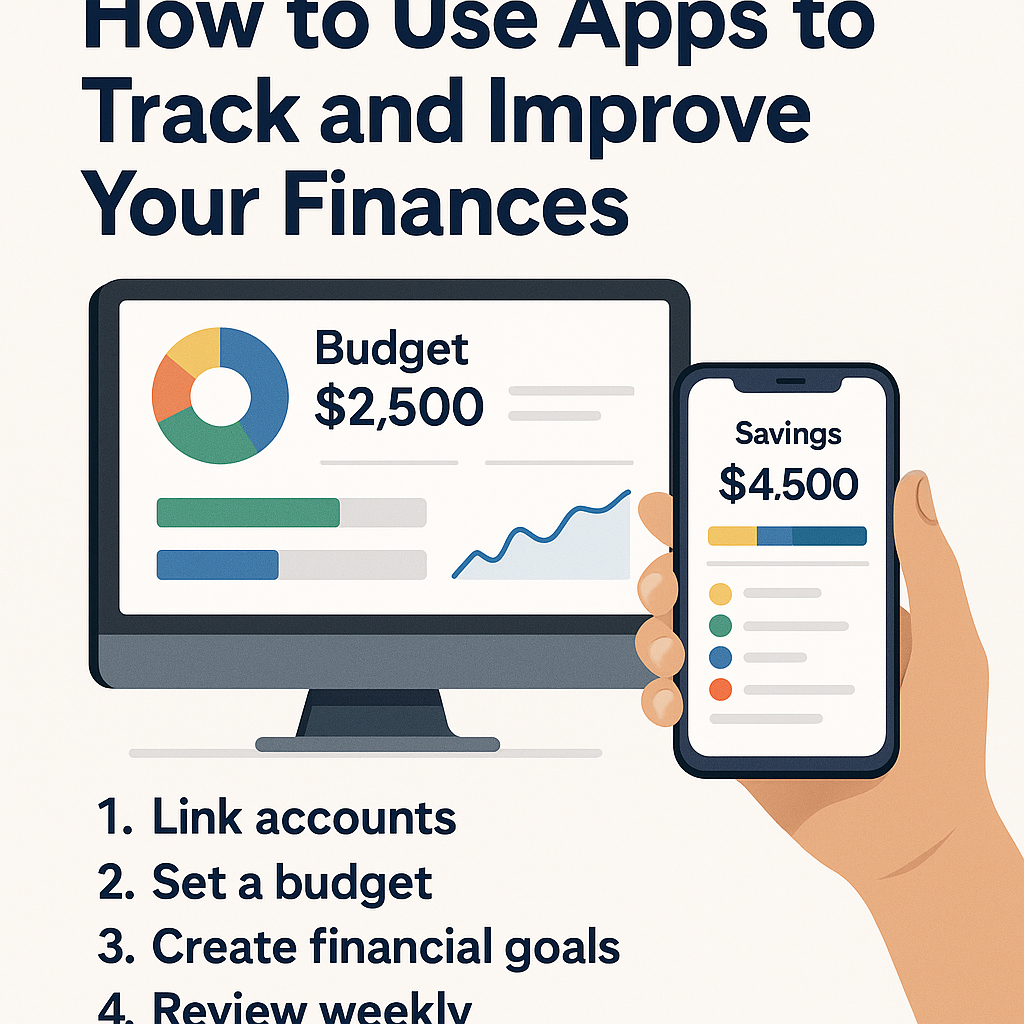Managing your money no longer requires paper notebooks or complicated spreadsheets. With the right app on your phone, you can track your spending, monitor your savings, create a budget, and plan your financial goals—all in one place.
This article will guide you through how to use finance apps effectively, the best apps for different needs, and tips to make technology work for your money.
Why Use a Finance App?
Using a personal finance app gives you:
- Real-time insights into your income and spending
- Automatic categorization of expenses
- Budget tracking by category
- Bill reminders so you avoid late fees
- Goal tracking for things like emergency funds or travel savings
They make managing money easier, more efficient, and accessible for beginners.
Best Types of Financial Apps (and What They Do)
Here’s a breakdown of the main categories of financial apps and how they can help:
1. Budgeting Apps
These help you create a monthly budget and track your spending.
Top picks:
- You Need a Budget (YNAB): Great for proactive budgeting
- Mint: Free and easy to use for beginners
- Goodbudget: Envelope-style budgeting
- EveryDollar: Clean, simple budgeting tool
2. Spending Tracker Apps
Focus on where your money is going.
Top picks:
- PocketGuard: Shows how much you have left to spend
- Spendee: Tracks and categorizes expenses
- Wally: Visual spending insights
3. Savings and Goal Apps
These help you set and automate savings goals.
Top picks:
- Qapital: Save money automatically using smart rules
- Digit: Uses AI to move small amounts into savings
- Chime: Offers round-up savings from purchases
4. Investment Tracking Apps
See how your investments are performing in real time.
Top picks:
- Personal Capital: Combines budgeting + investment tools
- Morningstar: In-depth analysis for investors
- Fidelity/Vanguard/Robinhood apps: Monitor and manage portfolios
5. All-in-One Money Management Apps
These combine budgeting, spending, and investing.
Top picks:
- Empower (formerly Personal Capital)
- Monarch Money
- Simplifi by Quicken
How to Choose the Right App for You
When selecting an app, ask yourself:
- Do I want to budget manually or automatically?
- Do I need to track spending across multiple accounts?
- Am I more focused on saving, investing, or debt reduction?
- Do I prefer free tools or premium features?
Try out 2–3 apps to see what feels intuitive and motivating.
How to Use These Apps Effectively
1. Link Your Bank Accounts and Cards
This allows the app to automatically track your income and expenses. It saves time and ensures accuracy.
Most apps use bank-level encryption and are safe, but always read privacy policies.
2. Set a Monthly Budget
Break your spending into categories like:
- Housing
- Food
- Transportation
- Entertainment
- Savings
- Debt repayment
The app will alert you when you’re nearing or exceeding your limits.
3. Create Financial Goals
Most apps allow you to set goals, such as:
- Save $1,000 for emergencies
- Pay off $500 in credit card debt
- Save $100/month for a vacation
Track your progress over time and celebrate small wins.
4. Review Your Finances Weekly
Block 10–15 minutes every week to check your dashboard. Look for:
- Overspending
- Unusual charges
- Progress on savings
- Category breakdowns
This habit builds awareness and confidence.
5. Use Notifications Wisely
Turn on alerts for:
- Upcoming bills
- Overspending
- Unusual transactions
- Goal milestones
Notifications help you stay on track without checking constantly.
Pros and Cons of Finance Apps
✅ Pros:
- Easy to use, even for beginners
- Saves time with automation
- Helps build strong financial habits
- Keeps all your financial info in one place
❌ Cons:
- Some apps have subscription fees
- May feel overwhelming with too many features
- Not all apps support all banks
- Can become passive if not reviewed regularly
Final Thoughts: Let Technology Work for You
Finance apps are like personal assistants for your money—they organize, remind, calculate, and track. But they only work if you use them consistently and intentionally.
Start by downloading one app that fits your goals. Use it for a full month, and pay attention to how it helps your mindset and spending decisions. With time, tech-powered habits can transform your financial life.
